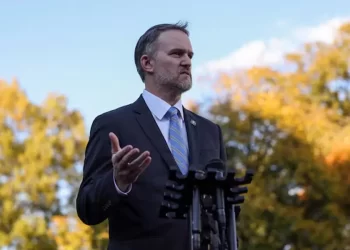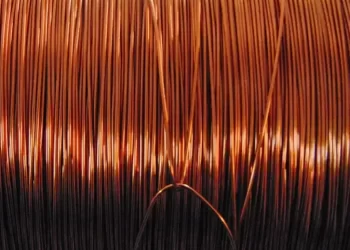NEW YORK (news agencies) — It would have been the largest-ever private gift to a historically Black college or university: $237 million — far beyond the recipient’s endowment. The money was promised by a 30-year-old who had recounted his rise from a childhood in foster care to becoming, as he put it, Texas’ “youngest African American industrial hemp producer.”
And so, the first weekend of May, Florida A&M University celebrated Gregory Gerami’s extraordinary contribution with all the necessary pomp. He spoke at commencement. Regalia-clad administrators posed with a jumbo check. Gerami even assured the audience that “the money is in the bank.”
It wasn’t, and it may never be.
Following public backlash over its apparent failure to properly vet Gerami and the donation, FAMU said the gift is now on pause — dashing expectations of increased financial stability for the 137-year-old institution and its 9,000 students. Gerami maintains everything will ultimately work out, but other small universities he approached with proposals for major donations never got any money.
Gerami contacted Florida A&M’s development office about a donation last fall, according to Shawnta Friday-Stroud, then-vice president for university advancement. University officials, including President Larry Robinson and Athletic Director Tiffani-Dawn Sykes, began meeting with him virtually shortly thereafter.
In January, Atlanta’s Spelman College publicized a $100 million gift — then considered the single largest donation to any HBCU. FAMU officials say Gerami wanted to surpass that figure. They ultimately agreed it would come through 14 million shares in his fledgling industrial hemp company.
However, the value of the company — and those shares — remains unclear.
Gerami founded Batterson Farms Corp in 2021 with aspirations of becoming a leading hemp plastics producer. While Texas Department of Agriculture records confirm the company is licensed to grow hemp, little else suggests that’s happening.
The company’s website is sparse. Affiliate links to purchase HempWood products were broken and the shopping cart payment function failed when an media reporter visited the site in late May and early June. A confusing message to investors also warned of late fees for failing to complete monthly payments on time.
Kimberly Sue Abbott, a founding board member who told the news agencies that she was incorrectly listed as co-CEO, cast doubt on Gerami’s self-reported value of the shares and said Batterson Farms “is not farming any hemp anywhere that I’m aware of.”
She and Gerami met around 2013 during her time on the Birmingham City Council in Alabama. She felt he needed guidance on how to “do something good with his money.” He has since invited her to partake in various ventures — none of which lasted, she said.
“He never holds to a schedule. The information that he has is always flawed somehow. Technicalities are always an issue,” she said.
Greg Wilson, HempWood’s founder, confirmed that Gerami is a customer but said he doesn’t buy much. High interest rates have dampened both home sales and interest in remodeling with products like his, Wilson said, making it a bad time for wood-alternative businesses.
Gerami described Abbott’s characterizations as “inaccurate” and outdated. Without answering whether or not Batterson Farms is growing hemp, he said his company acts as an intermediary between farmers and consumers. He refused to provide specifics about the company’s contracts, revenue and staffing.
He also claimed that a third-party developer created the company’s website, which he said was never intended to be a place where people could directly buy flooring.
Florida A&M officials have shared little about their knowledge of Gerami or their vetting process.
Friday-Stroud told FAMU Foundation board members last month that an “expansive screening” into Gerami’s background produced the same information that ended up “on social media,” apparently referencing online upset over his previous reported donation attempts and his company’s obscurity.
Still, she said, they moved forward after looping in Robinson. Friday-Stroud signed a nondisclosure agreement on behalf of the foundation board on April 26 at Gerami’s request, according to a copy obtained by news agencies.
They also announced the donation while awaiting a still outstanding independent appraisal of the private stock’s worth, which Gerami said he assessed based on existing but undisclosed sales contracts.
Officials have acknowledged that the appraisal could return with a much lower valuation.









